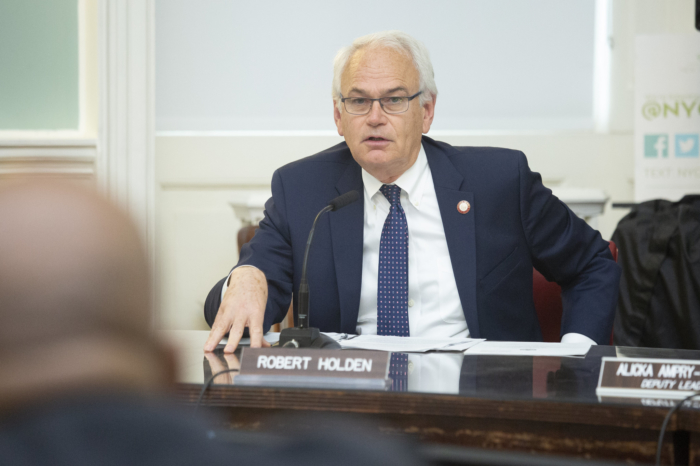by Kenneth Kowald
Constitution Day is Sept. 17, a Tuesday. If the past is any indication, the observance will be very limited indeed. I commented about that in a column last year.
I sent the column to my congressman, who has since retired— taking his buttonhole flower with him — urging him to help make this day an important one. After all, our lives in this democracy are based on what the framers of the Constitution did more than two centuries ago.
The congressman never bothered to acknowledge my note. So much for caring about constituents.
Those who met to draw up the Constitution, when the Articles of Confederation proved to be almost useless after the Revolution, were all white men who had lived in times of turmoil and were, by and large, very knowledgeable about history.
They knew that rulers imposed their religions on their people. The same rulers, they knew, controlled the means of communication in their duchies or kingdoms. They knew about the horrible Thirty Years War, which had torn Europe apart in the first half of the 17th Century. Christians killed Christians to try to show who was more the follower of Christ, known as The Prince of Peace. The more things change…
They knew that some 40 years before the Revolution, Peter Zenger, a printer and publisher in New York had been imprisoned for many months because the governor did not like what Zenger wrote about him and had Zenger charged with “seditious libel.” It took a jury, despite the best efforts of the biased presiding Royal justice, just 10 minutes to find Zenger not guilty, because they agreed with Zenger’s lawyer, Alexander Hamilton (not the one on the $10 bill) that the truth was a defense against libel.
The effort to stifle the press was turned back. But the efforts to do so never stop.
The framers of the Constitution realized that the document they brought forth was, as Benjamin Franklin pointed out, the best that could be done at the time. They also realized that the country that would live with that document was, like all countries in history, going to change with time. They may have wanted “a more perfect union,” but they knew that the future could change much of what they wrote.
That is why they made it possible to have amendments to the Constitution. They might not be easy to pass, but that was the whole point: If you wanted to change something, think and talk and vote about it and take your time.
The first amendments are The Bill of Rights. We’ve heard a great deal recently, thanks to gun-crazy murderers, about Article II. But the authors of the Bill of Rights chose the following as the First Amendment:
“Congress shall make no law respecting an establishment of religion, or prohibiting the free exercise thereof; or abridging the freedom of speech, or of the press; or the right of the people peaceably to assemble, and to petition the government for a redress of grievances.”
Whatever publication form you are reading this in— be careful!
It appears that our federal government has, for many years, considered a free press an obstacle to government, especially in a time of “national emergency.” Other political groupings may feel the same, but it is the feds that can cause havoc with the Constitution.
Now, more than ever, the U.S. Department of Justice is looking into the workings of a free press and no one is immune, it would seem. The Associated Press, Fox News and The New York Times are among those whose reporters’ sources of information have been subject to what appear to be unconstitutional takings of their correspondence, telephone calls, interviews with officials, e-mails, etc.
I am greatly bothered by the lack of transparency in the executive branch of the federal government. I may not agree with many members of Congress, but I can appreciate their frustration with an administration which promised to be open and has too often been shut tight.
Hypocrisy is not unknown among politicians, but since this administration was going to be all about change, it seems that “change” meant making some things it spoke out against— to get votes — even worse. The votes counted. The promise did not.
As far as I know, I have never had a leak of a source of information which involved the national interest, but who knows? This is not a matter of a few reporters and news organizations. This is something all of us in a free society should be concerned about. It goes to the heart of the separation of powers and the concept that we are a nation of checks and balances in the law.
And communications companies are forced to turn over logs of calls that might be suspicious.
We have been assured that our conversations are not being listened to. “Trust us,” our leaders tell us.
Baloney! Ronald Reagan had it right: “Trust but verify.”
Who is verifying the actions of the executive branch? Cool Barry came into office talking about changing the things of the past. Look at the record.
He talks the talk. He does not walk the walk.
We haven’t had the full story on these matters and perhaps we never will. But our representatives in Congress, of whatever political bent, have an obligation to protect our liberties. Let us hope they do their jobs.
The laws must not be determined by public officials without proper safeguards for those in the gun sights of these bureaucrats, elected or appointed of any political persuasion. That goes for presidents and attorneys general.
It may seem, according to recent reports, that the administration is going to loosen some of its tactics. It seems it takes a long time for at least one Constitutional lawyer to get a message.
Comparisons are odious and I will not compare the Foreign Intelligence Surveillance Act to the discredited Star Chamber in England, but I can’t forget that Star Chamber was thought to be originally a pretty good idea and then corruption set in. We can learn from history, but only if we want to.
Perhaps Congress will do something about this. In the meantime, count your blessings that the very First Amendment to the Constitution protects us. Something to remember on Sept. 17 and any day.
We need to be reminded of our good fortune. In January 1941, Franklin Delano Roosevelt, in his Address to Congress spoke about The Four Freedoms. The first is freedom of speech and expression everywhere in the world.
You can see his words in Four Freedoms Park on Roosevelt Island. FDR had his problems with the press, like any politician, but he was smart enough to know how to deal with it. Maybe because he had a sense of humor. It is reported that he told Orson Welles that he and Orson were the best actors in America. And, he was the commander in chief at a time when the whole world was torn apart by war.
It might not be a bad idea for politicians and others to pay a quiet visit to Roosevelt Island and realize that the framers of the Constitution, so many years ago, understood the need for freedoms, even if at that time, it did not mean for everyone in our country. It’s an easy subway ride from Queens.
Pause a few moments on Constitution Day and read what the Rev. Martin Niemoller wrote about the freedoms that were lost in the world he inhabited and initially supported in Nazi Germany: “First they came for the Communists, but I was not a Communist and did not speak up.”
Read the rest of it as you will find it on the Internet and remember that none of us is an island cut off from the rest of humanity.
Maybe if he lived today and in this country, Niemoller might begin by saying: “First they came for the reporters, but I was not a reporter and did not speak up.” After that he might list the whistle-blowers, Tea Party members, Muslims. The list may be endless, until they come for you and me and there is no one to help.
The more things change….
Richard A. Clarke, author of “Against All Enemies,” and a top counterterrorism official in the administrations of George H.W. Bush, Bill Clinton and The Shrub, recently wrote in a New York newspaper “the argument that a sweeping search must be kept secret from the terrorists is laughable. Terrorists already assume this sort of thing is being done. Only law-abiding American citizens were blissfully ignorant of what the government was doing.”
Some 20 years before the Revolution, Benjamin Franklin got it right: “They that can give up essential liberty to obtain a little temporary safety deserve neither liberty nor safety.”
These are sad days for our country’s credibility, but as long as we stick to what that First Amendment so clearly stated, we shall continue to be a beacon of hope to the world. That, indeed, may be what American Exceptionalism is all about, including the amendments we cherish.
Happy Constitution Day!































